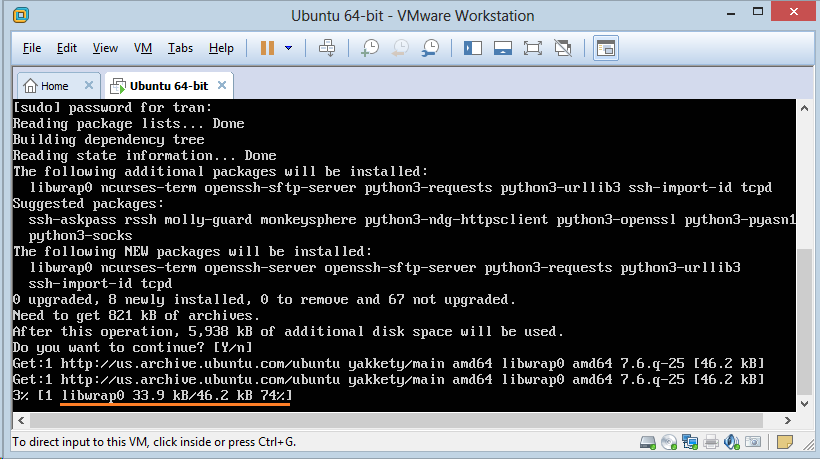

Ubuntu openssh server password#
What if your account on the hosting provider is hacked, and the bad actor can use the default root password to access your server via VNC console? Because I don’t want to keep the default password that’s generated by my hosting provider. Most of the time, I don’t use the root account, so I like setting a long, complicated password for root that even I can’t remember. Then restart SSH service for the changes to take effect. Remove the # symbol and change yes to no to disable root SSH login. sudo nano /etc/ssh/sshd_configįind the following line: #PermitRootLogin yes Then edit the SSH daemon configuration file. Verify that this new user can login via SSH and is able to use sudo. Next, add this user to the sudo group so this user can manage the server via sudo. You will be asked to set password for the new user. Replace username with your preferred username. You can create a user on Ubuntu by running the following command.

Thus, the attacker has to figure out the username before trying to brute force the password. We can create another user that has the ability to SSH login and disable root SSH login. Every Linux system has a root user account so it’s a bad idea to allow root user to login via SSH. You will see that bad guys are constantly trying to gain access to your SSH server, as indicated by messages like below. If you want to go straight to the end of the log, run sudo journalctl -eu ssh
Ubuntu openssh server full#
Press F to scroll down one full screen, B to scroll up one full screen. The -u flag specifies that we only want to see logs belonging to the ssh service unit. Checking Your SSH Server Logīefore applying my tips, you can view your SSH log by issuing the following command. It’s important that we secure it as much as possible. It’s the primary way for administrators to login to remote Unix/Linux servers and also one of the primary attack vector by bad guys. In this post I’m going to share 5 tips you can use to secure SSH on a public-facing Ubuntu server.


 0 kommentar(er)
0 kommentar(er)
